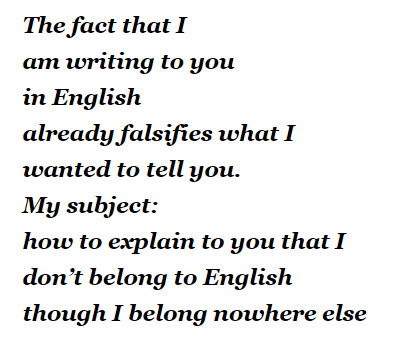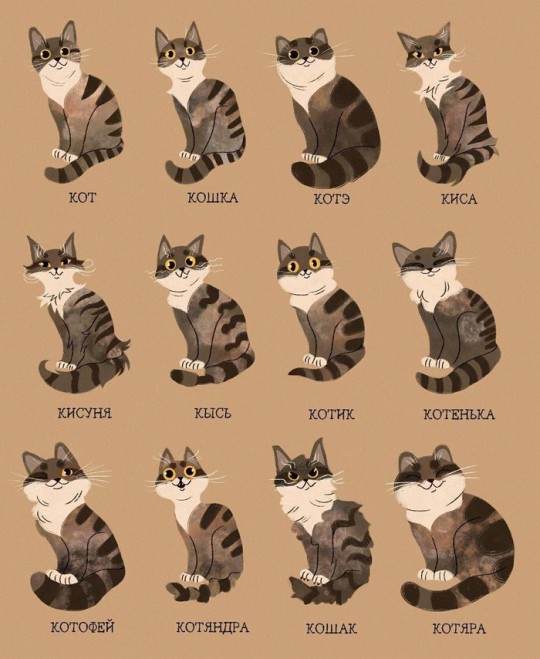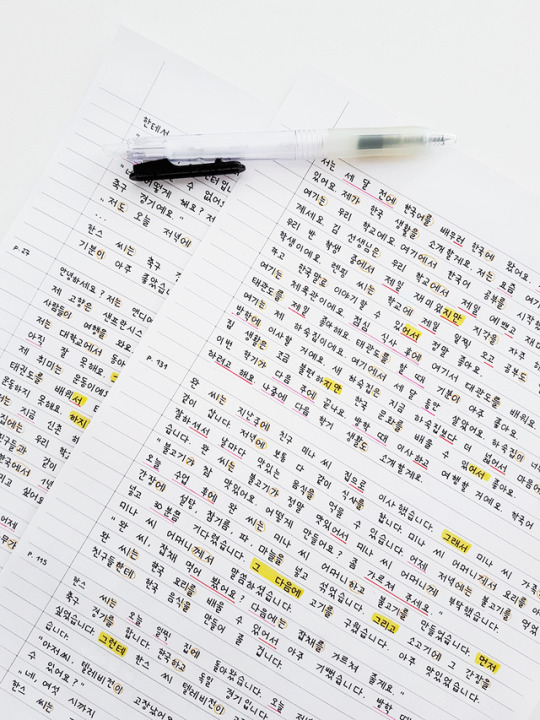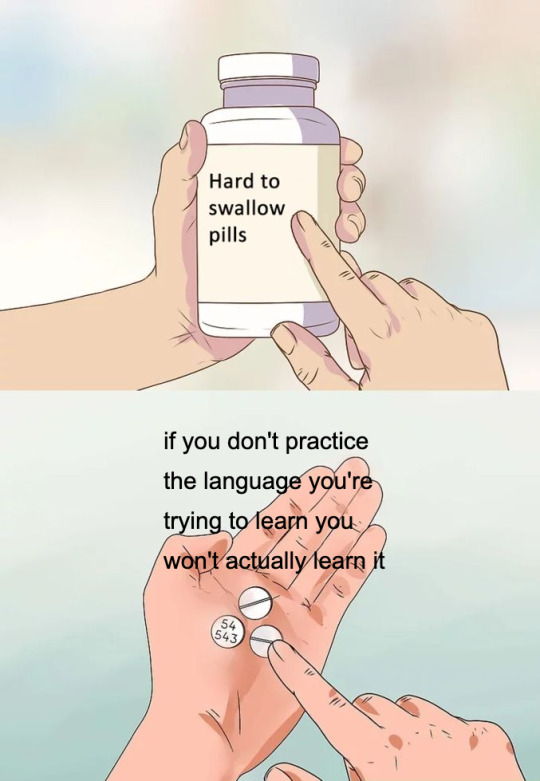Text
Podcasts
Knowledge :
Au coeur de l’histoire (history)
les chasseurs de nazis (nazi hunters)
france musique
on ne parle pas la bouche pleine (food + literature)
les chemins de la philosophie
le collège de france (advanced)
il était une fois (fairy tales)
la main verte (gardening)
la méthode scientifique
regardez voir (photography)
sur les épaules de darwin
very good trip (rock n roll)
chroniques du ciel (aviation)
la tête au carré (popularization)
les p’tits bateaux (pros answering children’s qs)
les grands musiciens (interview with a pro musician)
littérature moderne et contemporaine
Society :
Arte radio (politics, health, history, tech…)
slate (similarish to ted talks)
hashtag (debating very current problems)
quoi de meuf (women talking about pop culture)
affaires sensibles (trials)
les gentilshommes (relationships men/women)
bouddhisme et méditation
kiffe ta race (about racial problematics)
le flow (well being)
sois gentille dis merci fais un bisou (portraits of women)
les couilles sur la table (men talking to women)
miroir miroir (destroy social norms)
du grain à moudre (debating sensible questions)
coucou le q (casual sex ed)
change ma vie (about personal growth)
la poudre (powerful women’s interviews)
nice to hear you (talks with creators, ceos, artists and nice humans)
mortel (to reconcile you with death and mortality)
la menstruelle (periods)
Movies + tech :
La cartouche (gaming)
la chronique ciné
studio 404 (tech)
geek inc (nerd chatter)
nouveau monde (innovations)
2h de perdues (shitty movies)
silence on joue (gaming)
radio rôliste (role playing, mmorpg)
nociné (pop culture/movies)
season one (to discover new shows)

5K notes
·
View notes
Text
Annoying things
-emme is often pronounced -ame: Évidemment - obviously; Femme - woman, f
The F of Neuf when followed by a vowel turns into a V: Neu-v-ans - Nine years old
Determiners Le/La turn into L' when before a vowel or H- (L'homme) when it has Latin roots but remains Le/La when the world has Germanic roots (Le hérisson)
-ch- can be pronounced -k- because of Greek: Orchestre, m
Negations are placed differently depending on the verb: if it's conjugated, there's one before and one after (N'entrez pas); if it's in the infinitive form, two will come first (Ne pas entrer)

123 notes
·
View notes
Text
Adverbial locutions #6
comme il se doit : appropriately
comme jamais : like never before
comme quatre : a lot
comme qui dirait : so to speak (fam)
comme si c’était hier : like it was yesterday
comme tout : extremely (Il est beau comme tout)
comme un cheveu sur la soupe : out of the blue (neg)
comme un coq en pâte : happy, spoilt
comme un grand : like a grown-up
comme un éléphant dans un magasin de porcelaine : like a bull in a china shop
comme un lapin/voleur/une flèche/une traînée de poudre : very quickly
comme un pied : badly
contre toute attente : unexpectedly
contre vents et marées : through thick and thin
corps et âme : body and soul
côte à côte : side by side
coûte que coûte : whatever happens
d’une main de maître : with a master hand
d’abord : first of all
d’ailleurs : by the way
d’année en année : year after year
dans ces eaux-là : something like that (fam)
dans la foulée : right after
dans la gueule du loup : in the trap
dans la joie et la bonne humeur : cheerfully
dans la merde : in deep shit
dans la mesure du possible : if at all possible
dans l’absolu : per se
dans le temps : in the past
dans l’ensemble : for the most part
dans les faits : in practice
dans les grandes lignes : broadly speaking
dans les plus brefs délais : asap
dans son for intérieur : deep inside
dans tous ses états : agitated, all over the place
d’arrache-pied : very hard (usually about work)
d’autant plus : all the more (since…)
d’autre part : on the other hand

252 notes
·
View notes
Text
Some practical vocabulary
Definite articles: determiners that refer to a known subject (The cat is asleep - Le chat dort)
Demonstrative: refers to things that are being pointed out (This, those, it's: Cette, ceux-là, c'est)
Direct speech: someone words, passed out directly (She said: "I am hungry" - Elle a dit "J'ai faim")
Gerund: en + verb ending in -ant; describes a second action happening at the same time as the first (She sings while running - Elle chante en courant)
Indefinite articles: determiners that refer to an unknown subject (A cat is at the door - Un chat est à la porte)
Partitive articles: determiners that refer to a subject that is a portion of something bigger (Je veux de l'eau - I want water)
Past participle: the second part of the perfect tense (She has drunk water - Elle a bu de l'eau)
Possessive: refers to owned beings or things (Her, Ton: Sa, Your)
Present participle: verb ending in -ant; describes something or a fact that has consequences; sometimes turns into an adjective (A charming boy - Un garçon charmant; Mary being gone, I went for a run - Marie étant partie, je suis allé courir)
Reported speech: someone's words, passed out indirectly (ex: She told John that she wanted him there).
Subjunctive: mood triggered by certain verbs and expressions followed by que (I need to go - Il faut que j'y aille)
Transitive: refers to an element that requires an object (ex: Verb Aller - To go: Elle va + à l'école)

334 notes
·
View notes
Photo










Jamaica Kincaid, A Small Place // Chen Chen, When I Grow Up I Want to be a List of Further Possibilities // Warsan Shire, Conversations About Home // Fatimah Asghar, Partition // Aysha, Diaspora Defiance // Ocean Vuong, On Earth We’re Briefly Gorgeous // Kaveh Akbar, Do You Speak Persian? // Safia Elhillo, Date Night With Abdelhalim Hafez // Gustavo Perez Firmat, Bilingual Blues // Scherezade Siobhan, How to Welcome the Dead
12K notes
·
View notes
Note
oooh have you ever done a post about the ridiculous mandatory twist endings in old sci-fi and horror comics? Like when the guy at the end would be like "I saved the Earth from Martians because I am in fact a Vensuvian who has sworn to protect our sister planet!" with no build up whatsoever.

Yeah, that is a good question - why do some scifi twist endings fail?
As a teenager obsessed with Rod Serling and the Twilight Zone, I bought every single one of Rod Serling’s guides to writing. I wanted to know what he knew.
The reason that Rod Serling’s twist endings work is because they “answer the question” that the story raised in the first place. They are connected to the very clear reason to even tell the story at all. Rod’s story structures were all about starting off with a question, the way he did in his script for Planet of the Apes (yes, Rod Serling wrote the script for Planet of the Apes, which makes sense, since it feels like a Twilight Zone episode): “is mankind inherently violent and self-destructive?” The plot of Planet of the Apes argues the point back and forth, and finally, we get an answer to the question: the Planet of the Apes was earth, after we destroyed ourselves. The reason the ending has “oomph” is because it answers the question that the story asked.

My friend and fellow Rod Serling fan Brian McDonald wrote an article about this where he explains everything beautifully. Check it out. His articles are all worth reading and he’s one of the most intelligent guys I’ve run into if you want to know how to be a better writer.
According to Rod Serling, every story has three parts: proposal, argument, and conclusion. Proposal is where you express the idea the story will go over, like, “are humans violent and self destructive?” Argument is where the characters go back and forth on this, and conclusion is where you answer the question the story raised in a definitive and clear fashion.

The reason that a lot of twist endings like those of M. Night Shyamalan’s and a lot of the 1950s horror comics fail is that they’re just a thing that happens instead of being connected to the theme of the story.
One of the most effective and memorable “final panels” in old scifi comics is EC Comics’ “Judgment Day,” where an astronaut from an enlightened earth visits a backward planet divided between orange and blue robots, where one group has more rights than the other. The point of the story is “is prejudice permanent, and will things ever get better?” And in the final panel, the astronaut from earth takes his helmet off and reveals he is a black man, answering the question the story raised.

85K notes
·
View notes
Text

Here’s me trying to save money by adding vanilla flavored milk to my homemade cold brew.
These days it’s the little things I look forward to.
It used to be trips and reunions and weddings. It used to be sleepovers and cinemas and amusement parks.
Now it’s a cup of coffee.
Now, it’s a delicious story about people with very different lives from my own.
It’s a stroll outside in this apocalyptic climate.
It’s a phone call with my best friend.
It’s figuring out who the murderer is in whichever detective show I watch, before the reveal.
It’s listening to an audiobook late at night in bed, imagining vividly all the things being described.
Now I look forward to the little things, they keep me busy until the big things are back.
135 notes
·
View notes
Note
Hi mum <3 do you any tag/post about curse words/expressions/slang? haha i promise to use it wisely! j'ai besoin de scold quelqu'un ;)
Hello dear,
I made those! Here's some more:
This is nonsense: Tu dis n'importe quoi (neutral)/Tu racontes de la merde (rude)
Shut the hell up: Ferme bien ta grande gueule
No one likes you: Personne ne t'aime
Chill: Calme ton cul
Random ways to express frustration without insulting anyone: Merde, Putain, Fait chier, Chier, Nique sa race, Nique sa mère, Chiottes, Ça me fait trop chier, Bordel, Putain de bordel de merde de sa race (as you do)...
Random insults that technically aren't rude (vocabulary) but still savage and efficient; doubting of someone's intelligence or worth: (agender) Face de rat, Banane + Benêt + Abruti + Neuneu (dumb) Cloporte, Andouille, Grosse quiche, Grosse tanche, Sale race; (f) Pouilleuse, Grande dinde; (m) Tête de noeud, Vaurien, Vieux con (older), Sale plouc, Gros porc (perv), Minable, Fils de chien, Pouilleux, Sac à vin (drunk)...
Same but actually rude: (a) Mange-merde, Enflure, Trou du cul, Raclure, Casse-couilles, Connard, Sac à merde, Sac à foutre, Sale merde, Grosse merde, Gros tas de merde, Lèche-cul (asslicker) ; (m) Sale bâtard, Crétin, Crevard (stingy), Couillon, Salopard, Tête de con, Connard, Sale boloss, Branleur (lazy), Ducon, Enculé de ta mère; (f) Grosse chienne, Pétasse, Connasse, Pouf/Poufiasse, Crevarde (stingy), Salope, Grognasse...

Bisous!
199 notes
·
View notes
Note
yooo how do u email a prof for a recommendation letter?
Hi Professor!
I am in the process of applying to ____ and they require letters of rec. I sincerely enjoyed your classes, and felt that they gave me a particularly good chance to display my strengths, such as ____ [class participation, writing, etc.] and would love for you to write me a letter, if you’d be willing. The due date is ____, and I can send you further instructions for submission later if you accept.
Attached to this email is ____, the piece of work I did in your class which best showcases my abilities, as well as my current CV [or resume]. If you agree to write me a letter, soon I will also send you drafts of my ____ [statement of purpose, personal statement, application essays, other relevant material] for my application to aid in your writing. I am also happy to meet in person to discuss this with you.
I want to stress that this application is quite competitive, so if you feel you will not be able to write me a strong letter then I completely understand - but please let me know. Thank you so much for your time!
Sincerely, ____
—
a few notes:
- you should have all your relevant materials (app essays, etc.) sent to them *at least* a month in advance to give them ample time to write the letter
- thus, your initial email asking them if they’d be willing to write a letter for you should be sent *over* a month in advance. professors are busy
- if you are applying for a really prestigious position/scholarship/fellowship, or grad school, it’s best to have at least a majority of your letter writers be professors (rather than adjuncts or post docs). ideally you’d want them to be full/tenured professors. in lots of cases, especially academic ones, *who* writes your letter matters - not just *what’s in* your letter
- the reason you send them the piece of work you did in their class that you are most proud of is to remind them of your abilities as a student and the quality of the work you produced for them. they have lots of students. sometimes they need a bit of help jogging their memory of exactly what you did in their class.
- the reason you send them your other application materials (personal statement, statement of purpose, CV) is so that they have information to draw from when writing your letter. they know what you’re passionate about, what you hope to do in the future, other experience you have, and can use this information when writing your letter
- on a similar note, this is also why you’d want to list the strengths you displayed in their class
- basically, you want to give them as much information as you can about your strengths, goals, and intentions - give them prompts they can use to write your letter
- the bit at the end about asking for a “strong letter” is important because some professors can only write you mediocre letters (e.g. “this student was always on time to class and gave their undivided attention during lecture” - what does this tell admission committees? well, it tells them that the professor has nothing positive to say about your *academic* abilities and so they’re resorting to other strengths. it’s a polite way of saying “this student was okay, but not spectacular in any notable way”. big red flag for admissions committees.) if all you’re going to get is a mediocre letter, you might as well not get a letter at all
- if the professor you ask accepts, then be sure to send them polite reminders as the date approaches. (i usually send a reminder at the 1-month-till-due-date mark when i send the other application materials, and then again at the 2 week and 1 week marks, and, if necessary, every day after the final 3 days leading up to the due date
—
i know this was a lot, but i remember being in your shoes and being completely lost when it came to applying for stuff so i know how daunting it can be. i figured i’d just throw all this information at you to be of as much help as possible.
for reference, i’ve applied to graduate programs, fellowships, and scholarships. i have been accepted into several of the top 10 graduate programs in my area, as well as received multiple scholarships and a fellowship, and received honorable mentions for some of the most competitive fellowships in the US. i have also worked with the admissions committee at my graduate program to organize multiple informational events for those interested in applying to graduate school and, in the process, have learned a lot about what makes a strong application.
so while you should absolutely take my advice with a grain of salt (different circumstances call for different standards), i do have quite a bit of experience with applications and what makes a strong letter of rec.
i hope this helped! best of luck with whatever you’re applying for :)
9K notes
·
View notes
Text
A few useful expressions
Je vous/te laisse imaginer… : imagine… (ex : he hadn’t slept in two days, je te laisse imaginer how long he napped)
Je te le donne en mille : You’ll never guess (ex : and what do you think she did? Je te le donne en mille : she said no and ran!)
Je te prends au mot : I take your word for it
Je te connais par cœur : I know you perfectly
Je ne te le fais pas dire : You’re telling me!
Je crains/j'ai peur que non : I’m afraid not
Je ne sais pas : I don’t know
Je regrette : I’m sorry, I wish I hadn’t (Je regrette de t'avoir fait mal)
Je t'ai posé une question : i asked you something (angry)
Je te le rends bien : It’s mutual
Je t'en prie : You’re welcome
Je t'en supplie : I’m begging you
Je t'en foutrai, du/de la/des x : I’ll give you x (angry)
Je t'en veux : I’m mad at you
Je compte bien… : I fully intend to…
Je m'en fiche/fous (rude) : I don’t care
Je veux bien : I’d love to
Je le jure : I swear
Je fais de mon mieux : I’m doing my best
Je garde espoir que… : I remain hopeful that…
Je demande à voir : I’ll believe it when I see it
Je disais donc que… : As I was saying…
J'ai envie de : I want, I feel like
J'ai tout laissé tel quel : I left without changing/touching anything
J'ai failli lui dire : I almost told him/her
J'ai changé d'avis : I changed my mind
J'ai besoin d'y réfléchir : I need to think about it

3K notes
·
View notes
Text
100 Common Words in Korean
사실 - Actually
다시 - Again
조금 - A little
많이 - A lot
벌써 - Already
항상 - Always
그리고 - And, And then
아파트 - Apartment
아기 - Baby, Infant
왜냐하면 - Because
생일 - Birthday
몸 - Body
책 - Book
근데 - But, However
옷 - Clothes
요리 - Cooking
아빠 - Dad
날 - Day
다른 - Different
꿈 - Dream
특히 - Especially
매일 - Everyday
시험 - Exam, Test
첫 - First
친구 - Friend
게임 - Game
키 - Height
집 - House, Home
얼마나 - How much, How many
나 - I
이미지 - Image
웃음 - Laughter
인생 - Life
빛 - Light
사랑 - Love
남자 - Man
고기 - Meat
기억 - Memory
더 - More
엄마 - Mom
기분 - Mood
아침 - Morning
돈 - Money
영화 - Movie
음악 - Music
이름 - Name
뉴스 - News
밤 - Night
아니 - No
지금 - Now
기회 - Opportunity, Chance
사람 - Person
사진 - Picture
실천 - Practice
약속 - Promise
질문 - Question
빨리 - Quickly
비 - Rain
정말 - Really
진짜 - Really
방 - Room
비밀 - Secret
학교 - School
쇼핑 - Shopping
잠 - Sleep
노래 - Song
봄 - Spring
아직 - Still
가게 - Store
학생 - Student
공부 - Study
갑자기 - Suddenly
맛 - Taste, Flavor
선생 - Teacher
텔레비전 - Television
그 - That
그때 - Then, At that time
요즘 - These days, Recently
이 - This, Two, Tooth
시간 - Time
오늘 - Today
함께 - Together
내일 - Tomorrow
너무 - Too
이해 - Understanding
아주 - Very, Extremely
우리 - We, Our
날씨 - Weather
잘 - Well
어떤 - What, Which
무슨 - What kind of, What
언제 - When
어디 - Where
누구 - Who
왜 - Why
겨울 - Winter
고민 - Worry, Concern
여자 - Woman
네 - Yes
너 - You
4K notes
·
View notes
Photo

kot - a regular cat
koshka - a regular female cat
kote (internet slang) - a cute chubby little guy, every single cute cat on the internet
kisa - a pretty, flirtatious, graceful, cranky and haughty lady
kisunya - an extra pretty, flirtatious, graceful, cranky and haughty lady
kis’ - just a dork, controlled by aliens
kotik - a bit more disney version of a regulat cat
koten’ka - cuddly little fella, will purr and knead you to death
kotofei - usually a big, old, extra fluffy cat, who knows a lot of bed time stories
kotyandra - fast, thin and slinky, we not sure if it’s even a cat
koshak - a tough street guy, dogs fear him
kotyara - extra round, exrta big, kind ass fella.
110K notes
·
View notes
Photo

02.01.2018 ✨ ig: gorapadeokstudies
방학 후에 시험을 볼 거예요. 그래서 크리스마스 동안 많이 공부 해야 했어요 ㅠㅠ
8K notes
·
View notes
Photo

making memes to try to convince my dumb ass to actually practice for once
1K notes
·
View notes
Photo

Merde, c'est reparti pour un tour • Sh*t, here we go again • /mɛʁd s‿ɛ ʁə.paʁ.ti puʁ œ̃ tuʁ/
747 notes
·
View notes






